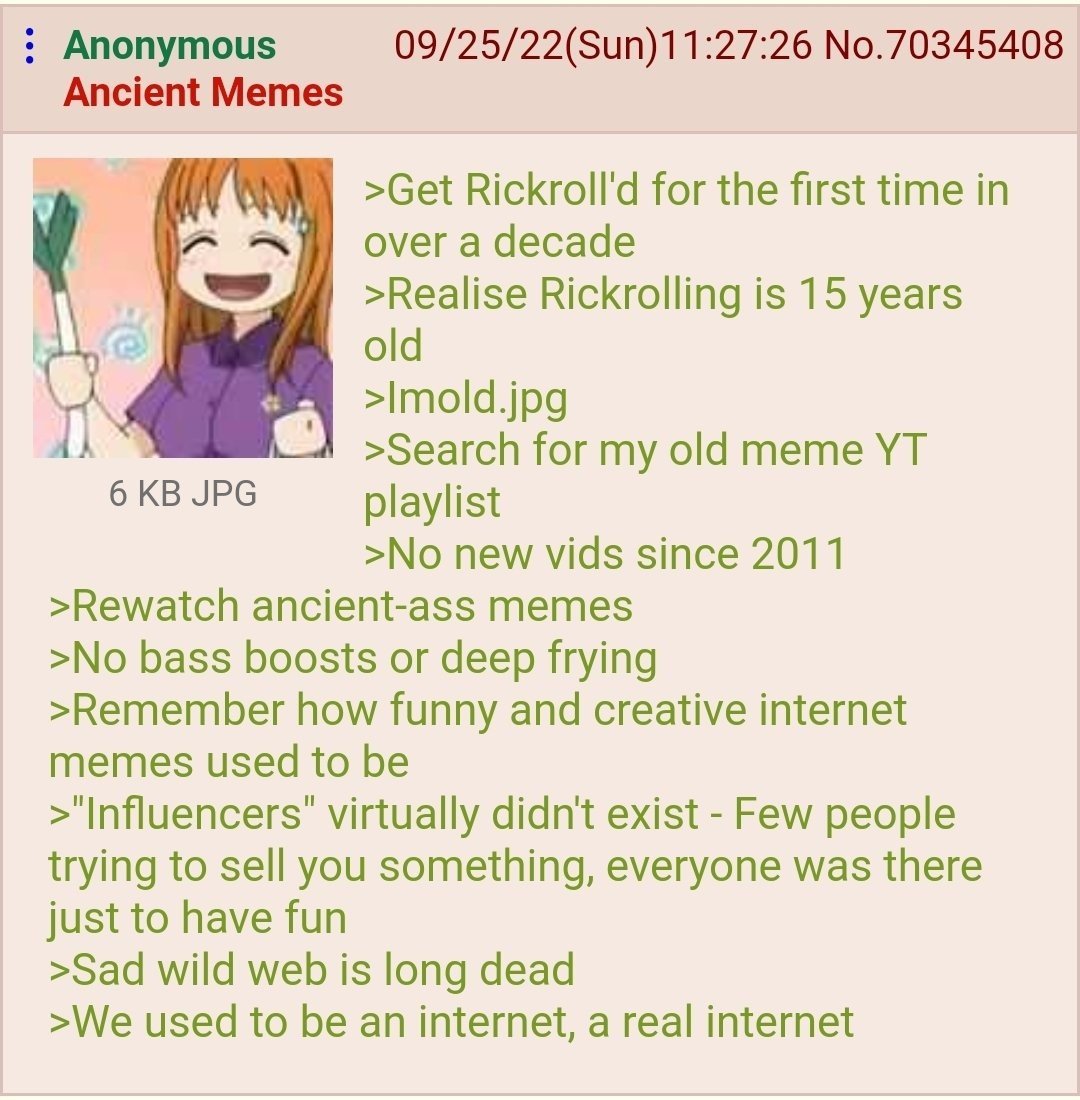this post was submitted on 05 Oct 2024
1224 points (98.0% liked)
Greentext
4616 readers
1585 users here now
This is a place to share greentexts and witness the confounding life of Anon. If you're new to the Greentext community, think of it as a sort of zoo with Anon as the main attraction.
Be warned:
- Anon is often crazy.
- Anon is often depressed.
- Anon frequently shares thoughts that are immature, offensive, or incomprehensible.
If you find yourself getting angry (or god forbid, agreeing) with something Anon has said, you might be doing it wrong.
founded 1 year ago
MODERATORS
you are viewing a single comment's thread
view the rest of the comments
view the rest of the comments

Nah I think they're more or less right. I'd maybe pull it back 3 or 4 years, but not as far as 2004.
What killed off the old wild web was the popularity of centralised platforms. Facebook (open since 2006, really started taking off more around 2008/9), YouTube (first video 2005, really takes off from 2007/8), and Reddit (self posts first allowed in 2008), and other things like that which were admittedly great for allowing more people to share their creations with the world, but we're disastrous for the open web, because they killed off independent blogs, forums, and other smaller websites.
MySpace was huge before Facebook, and it killed off a lot of blogs. Late 90s and early 2000s were truly the wild web IMO. I had a geocities page with its own forum before MySpace made me abandon it due to inactivity.
Webrings, RSS and dedicated blogs and forums were how we got around, Alta Vista would give you 1-2 relevant links eventually (after digging thing keyword spam) and then you’d follow the clues and links from each result and eventually strike gold. It was a skill that gate kept certain areas of the web, but in a good way.
But google was pretty awesome before it enshitification, same with Reddit and instagram (pre Facebook takeover).
We need a good non-profit search engine that can re-open the independent web that’s still there under the spam somewhere. But it sounds about as likely as overhauling the us election system, or reigning in capitalism in any way. Hard and expensive to rich people.
So it sounds like the Internet died in 2008.
I would say it contracted a terminal illness at some point around 2006±1 and went into palliative care in 2008±1, but didn't fully die for another 5ish years. The death of Google Reader seems a good landmark to use, since RSS was a really helpful tool that became less necessary as sites became more centralised.
Right about with the uprise of the smartphone i guess
When people without computers were let loose onto the web.
Not me browsing this from my phone app, no siree.
It's true that my original comment was also from my phone haha.